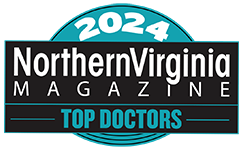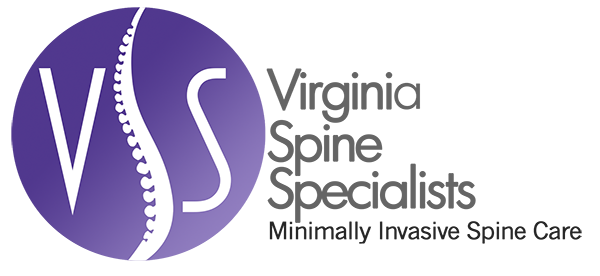Post Operative Instructions for SCS and PNS
SPINAL CORD STIMULATOR (SCS) / PERIPHERAL NERVE STIMULATOR (PNS)
INSTRUCTIONS AFTER SURGERY
Post-operative
- After your spinal cord stimulator surgery, you will work closely with your spinal cord stimulator representative in the post-operative course who will be available for any technical questions you may have concerning the management of your new stimulator. The representatives will do all the teaching and education regarding the spinal cord stimulator prior to your discharge from the hospital. Please contact your representative for any questions regarding the device.
Pain expectations
- A sore throat often occurs after intubation for anesthesia. After all surgeries, inflammation is a natural process of healing. We cannot and do not want to block this process. Please know we can take the “edge” off your pain, but we cannot stop ALL your pain. With each day that passes you will get stronger and oftentimes, must simply be patient as nature clicks off days on the calendar. You need to be encouraged by the “good days” as the “bad days” get further apart.
Wound care
- Keep your incision dry and clean.
- Bandages (dressing) need to be on incision until first post op appointment.
- Dressing needs to be changed daily
- Dressing is not provided by the hospital or surgeon to take home but can be purchased at your local pharmacy or drug stores.
- Do NOT put any ointments/lotions/antibiotic solutions on the incision
- If you notice drainage, redness, swelling or increased pain at the incision, call the office
Showering
- You may shower when the wound has been clean and dry for 24 hours. Do don’t scrub the incision or soap it. Just let water run over it.
- Make sure you pat the incision completely dry after showering. Be gentle – do not scrub the incision.
- Do not immerse the incision in a pool or bath until 6 weeks after surgery
Back brace
- If you have been ordered a back brace you must wear it 4-6 weeks after your surgery, anytime you are active or in a vehicle.
- Post op back braces are used to limit the motion of the spine after a patient undergoes back surgery. The back brace should be able to limit approximately 50% of the motion in the spine
- If you have sensitivity to the incision you can fold a hand towel and place it between your incision and the back brace
Activities
- Walking is the best activity. Walk as much as you like. It is good for you and will help you recover more quickly.
- AVOID the BLTs: Bending, lifting, and twisting of your lower back.
- Do not drive a car unless your surgeon has specifically allowed you to do so, or until you have seen your surgeon or his PA at your first post-operative appointment.
- No strenuous or sports activities until okayed by your surgeon
- DO NOT lift anything over 15 pounds
- Sexual activity is permitted as tolerated
Follow up
- We have already scheduled your fist post-operative appointment please refer to your letter for date and time. Most post-operative appointments are generally made 2-3 weeks after your surgery and will be with our PA David Pope; however Dr. Sharma will be in office for any questions or concerns.
- If your staples become uncomfortable, they can be removed 10 days after your surgery, please contact us to ensure our MA is here when you arrive.
- Please note your spinal cord stimulator rep will not be here for your appointment, however they will be at your first appointment with pain management.
Medications
- Monitor narcotic use after surgery to anticipate your need for refills. Dr. Sharma does not call in prescriptions after hours, Fridays, or on weekends. You will have to go to the Emergency Room if you run out of pain medications during these periods.
- PLEASE NOTE FOR PRESCRIPTION REFILLS YOU WILL NEED TO CALL AT LEAST 48-72 HOURS IN ADVANCE.
- Narcotics often cause severe constipation. To help with this, make sure you take Colace 100mg twice a day regularly. If still constipated, try 20ml of Mineral Oil and 20ml of Milk of Magnesia mixed daily.
Call our office at (855) 774-6334 immediately if you:
- Have significant drainage (more than just a few drops) and/ or odor from your wound.
- Have increased redness/swelling at the incision site
- Have a fever greater than 101 degrees
- Have new or unfamiliar pain or weakness in the arms or legs
- Have unexplained incontinence (“accident”) of bowel or urine, are unable to urinate, or have new onset of pain or numbness in the rectal, vaginal or scrotal area.

Phone: (571) 921-4877
Toll Free: (855) 774-6334
Fax: (571) 208-0585
Toll Free: (855) 774-6334
Fax: (571) 208-0585
Conditions We Treat
Chronic Back Pain
Neck Pain
Arm Pain and/or Numbness
Leg Pain and/or Numbness
Herniated Disc – Lumbar and Cervical
Sacroiliac Joint (SI) Pain
Slipped Disc
Spinal Stenosis
Spinal Fractures
Whiplash Syndrome
Failed Back Surgery
Office Hours & Locations
Monday – Thursday: 8am – 4pm Friday: 8am – 2pm Fredericksburg 4604 Spotsylvania Parkway, Suite 300 Fredericksburg, VA 22408 Manassas 9625 Surveyor Ct. Suite 320 Manassas, VA 20110
